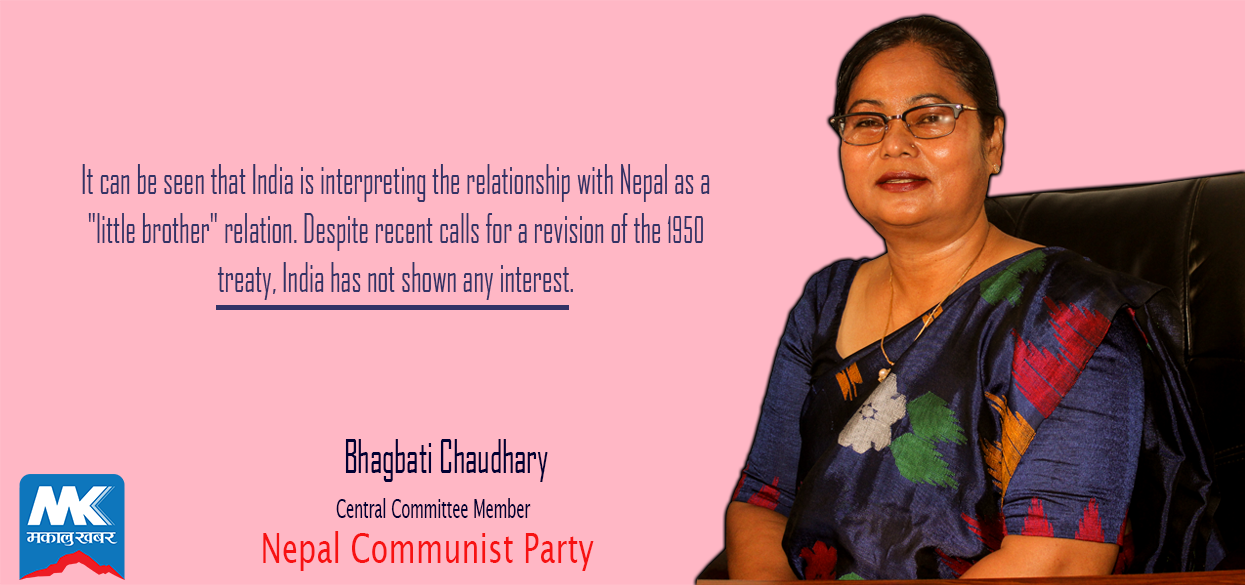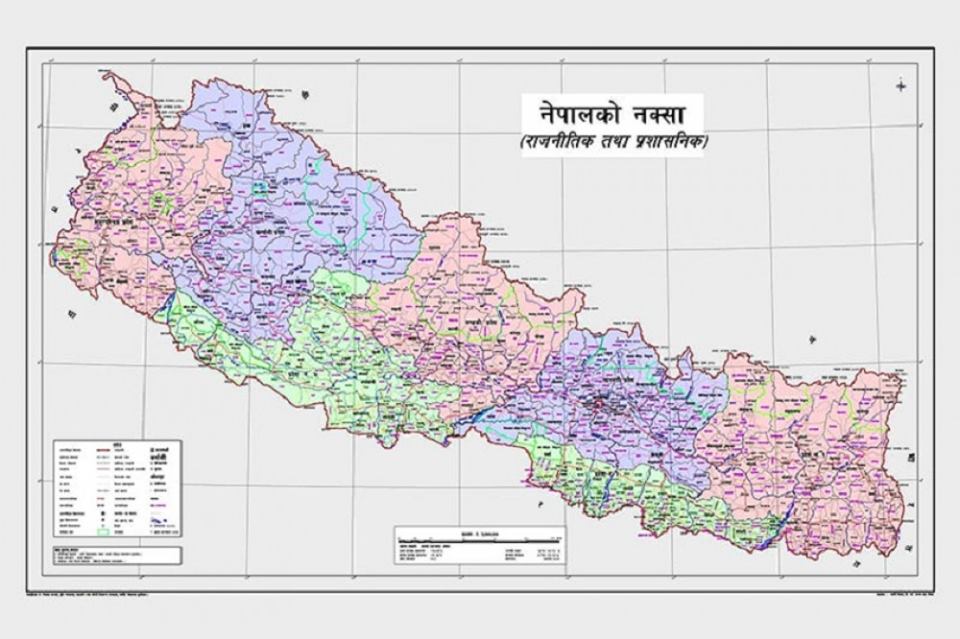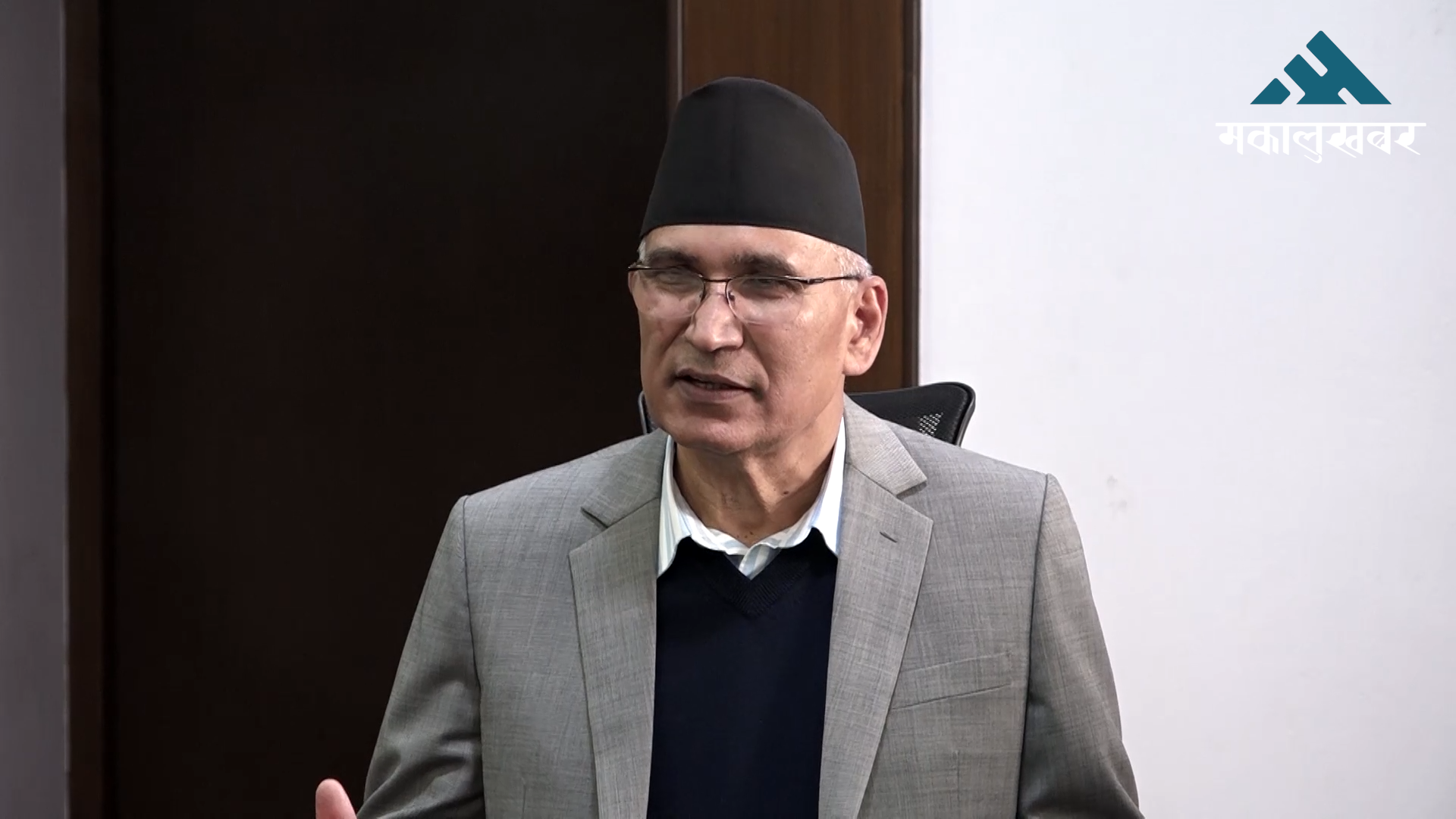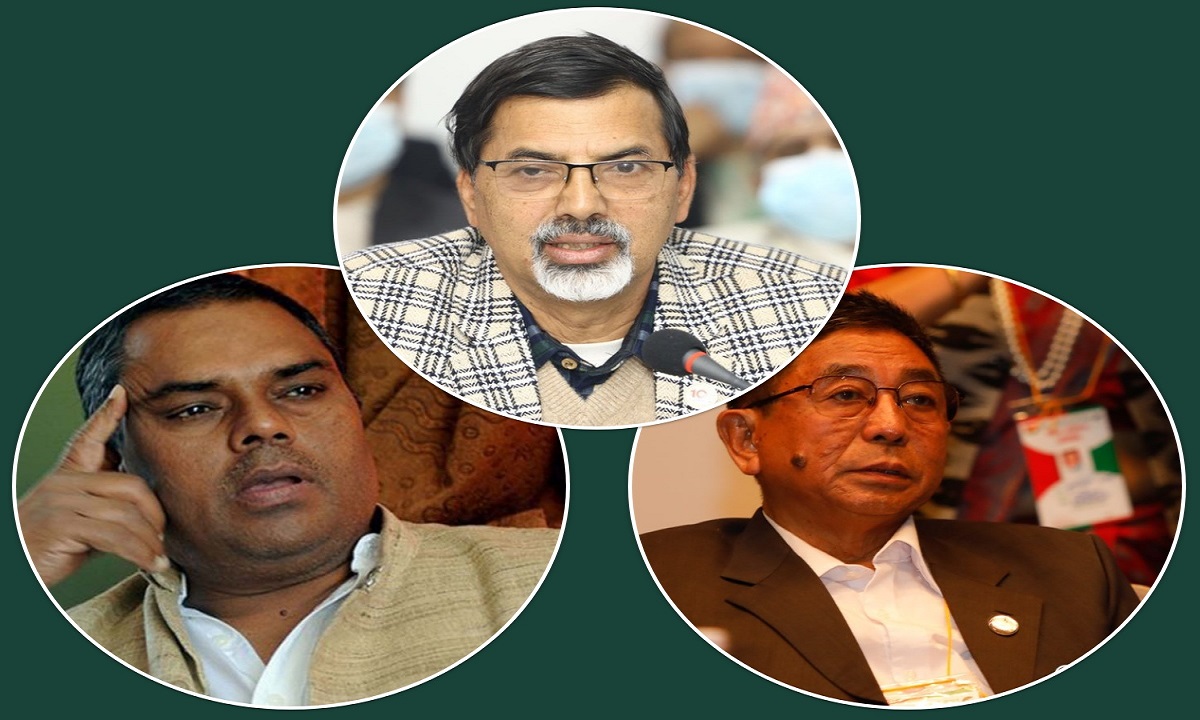“Diplomatic talks should be held to resolve border disputes”

One of the influential Central committee member of the ruling Communist Party of Nepal (CPN) stated that “a high-level diplomatic talks should be held between the two countries to resolve the long-running Nepal-India border dispute, Nepal-India relations, and the historic treaty of 1816 A.D.”. With an interaction to the national online news portal, Makalu Khabar, she further expressed that “India has always viewed its relations with Nepal like “little brother”. Here is the summary of the conversation with Bhagbati Chaudhary:
How are your days going?
The COVID-19 pandemic has almost paralyzed the social life of people and I am also affected like others common Nepalese people. I am somehow managing to stay connected with people through social media, cell phone and sometimes meetings with social distancing. I literally get worried and also feel thankful to those who are in frontline to fight against the COVID-19. At the same time I am conceptualizing about the social contribution that I can perform for the forthcoming post COVID socio-economic crisis. Apart from this, I regularly get updated with the recent national and international political developments. The recent issue that I have focused more to study and analyze is on the boarder issues at different times, between India and Nepal.

Indian is repeatedly accused of the encroachment of Nepalese territory. What is your view on the recent issue of encroachment in Limpiyadhura and Kalapani- Lipulekh?
Nepal and India are both sovereign nations and it is expected that both nations behave each other on the five principles of peaceful coexistence. I feel very sorry to say that India has repeatedly violated these principles while behaving with us. Not only in Limpiuyadhura, Lipulek and Kalapani but also in the Southern border, where the pillars are being removed overnight. India has shown this type of activity innumerable times since the Sugauli Treaty of 1816 A.D. I take it as the intentional repeated encroachment towards Nepal. The historical evidences clearly prove that Limpiuyadhura, Lipulek and Kalapani belong to Nepal. Due to our geographical nature and the dependence on the trade, I feel that the Indian counterparts have a misconception that our country may not move forward without their support and they have a right to behave as they feel. It is natural that we are somehow dependent due to our geographical and financial limitations. However, nationality is a different issue; it can never be linked with any other issues.
What do you think is the intention of India behind repeated encroachment on Nepalese territory?
This is the issue on which I always get surprised. India is twenty two times larger than Nepal and they are finding difficult to nurture their own land. Why are they interested in our land? I feel that we are also responsible in the sense that our governments never show the interest to solve the boarder issues with India and they are not confident enough for table talk as a sovereign nation. I blame the reluctance of our governments as the prime cause of repeated encroachment from Indian side. However, the recent government led by Mr KP Oli has shown that courage. At the same time, India’s hegemonic tendency co-linked by the religion, culture, socio-economic context, geopolitical issues, and security threats to India may also be the aggravating factors for the expansionist activities. The major factors, I feel, for India’s expansionist policy is its ambition to arise as the global economy and they have eyes on our natural resources for that. We must also deeply analyze the Indo-China interests and relations while we talk on the geographical, political and economic issues of our country.
Don’t you feel that we are politically and economically very much dependent on India this dependency is aggravating for Indian encroachment?
Yes, our political movement is also responsible for it to some extent. India has a direct and indirect presence in Nepal since the establishment of democracy in 2007. India has viewed Nepal as a “little brother” since a tripartite agreement between Nepali Congress and King Tribhuvan in New Delhi on 20th March 1947 to displace the autocratic Rana rule, mediated by the then Indian Prime Minister Jawaharlal Nehru. Our history proves that India is always involved in our political changes. The Nepalese students who went to study in India established the Praja Parishad and the Nepali Congress from India. Leaders like BP Koirala and Pushpalal, who ended the Rana regime, were influenced by Jamar’s Indian independence movement. All the Nepalese movements for political freedom including the movements of 2017 BS and 2046 BS, the armed people’s war of 2052 BS, the 12-point agreement, and the joint people’s movement of 2006-2007 have Indian involvement. India has repeatedly played vital role in the major political events like; the Comprehensive Peace agreement and the promulgation of the Constitute Assembly of 2006 and 2007. The common features in the religion, language, culture, marriage, migration and also the open boarder have made a situation where two countries are interdependent on each other. At the same time, our 80% business import is from India. This is a bitter truth that we are brought and born in such a geopolitical situation that we must be economically dependent with India. I think that India, sometimes, tries to take extra advantage due to our above stated limitations.
What do you feel wrong with the Sugauli Treaty of 1816 and the subsequent supplementary treaty that made India despise Nepal?
Before the Sugauli Treaty of 1816, Nepal was bordered by Tista in the East, Nainital in the Southwest, Kumaon, Gadwal, and Bashahar in the West. Nepal lost two-thirds of its territory when we signed the Sugauli Treaty with the East India Company. The treaty directed three aspects: Nepal should handover the land that was lost in war, British government representative will be stationed in Kathmandu, and the Gorkhas will be recruited into the British army. In this treaty, Nepal lost the Western part of the Kali River, currently in Kumaon (Uttrakhand), India, some areas of West of the Garhwal Sutlej River, Kangada (Himachal Pradesh), and most of the Terai region.
However, the East India Company had returned Banke, Bardiya, Kailali, and Kanchanpur in the Terai in 1865, saying that Nepal had greatly helped in the suppression of the revolt of 1857. In the Sugauli Treaty, the border of Western Nepal is clearly defined by the Eastern Kali River. After the treaty, a map was issued by the British government which clearly showed the territory of Nepal up to the Kali River. The map issued in 1817 also stated that Limpiyadhura, Lipulek, and Kalapani are territories of Nepal. Despite the clear cut geographical identity of Nepal, the politically, economically, and socially stronger India gradually adopted an expansionist policy with various activities like; encroaching the border.
In 1950, a treaty was signed between Nepal and India in which India accepted Nepal as an independent, integral, sovereign nation and to establish a companionable relationship between the two countries. The treaty recognized Nepal’s sovereignty, but in some aspects, India strengthened its role in Nepal’s internal and external affairs and always tried to treat Nepal as “little brother”.

How come that our government was not aware of the road construction since 12 years and also inclusion of Limpiyadhura, Kalapani, and Lipulek in their map ?
Surprisingly, when India has been building roads in Kalapani since 2008, no government official has ever expressed their notification to it. It is not that they didn’t know it but it was their reluctance to raise and solve the issue. This government is really thankful as it has raised the issue and trying hard to solve it. We really become upset to our leaders who avoided this problem during their leadership in the government.
There are many facts and evidences which prove that Limpiyadhura, Lipulek, and Kalapani belongs to Nepal. The historic treaty and agreements, the 2018 census, the documents of British Library, the Office of Public Records, and the maps in the US Library of Congress confirms that the area belong to Nepal. The facts of Sugauli Treaty and the Supplementary Treaty also prove that India has encroached the Nepalese land.
The dispute erupted in 2015 after China and India signed an agreement to utilize the Kalapani area for bilateral trade activities without the consent of Nepal. Kalapani is the Nepalese territory and also the trilateral border area of Nepal, India, and China. This treaty was the direct encroachment and we can never accept it. The ruling elites missed the chance to take a strong stand and save our land at that time.
Kailashkut area is important to Nepal, India, and China from commercial, religious and tourism point of view. Why do you think that Nepal never recognized the importance?
Ironically, we did not understand the importance of the natural resources of the particular area. In 2015, when India and China signed an agreement to use the area, we showed little to no interest. If Nepal would have strongly raised the voice against the move of India and China, we could have prevented from the encroachment. Nepal failed in taking India and China in confidence to solve the issue at that time.
What do you think will be the political and economic impact of the recent controversy that erupted after India built their roads on Nepalese Land?
Look, it’s a matter of nationality. It is about the motherland. India’s unilateral mapping of roads is an attack on Nepal’s nationality. However, the government, especially the minister for Land Reforms, Padma Aryal, and others, have worked against the encroachment of Nepali land has become a historical move. At this time, bringing our land is the prime issue rather than thinking of political and economic situation impacts.
I think that the recent border dispute with India has reached its climax. Now the need is for a highest level diplomacy and the solution of the problem. The longer it takes to solve the problem, India will be stronger and more events of encroachment may be resulted.
What do you think that the government should do to bring back our land ?
One thing is for sure, we are not in a position to bring back our borders by waging war with India. And, in the 21st century, the strategy of moving forward by waging war between the two countries is like reverting back to the 1800s or 1900s which is no longer the right way. Diplomacy is the one and only way to resolve the current border dispute with India. The government should resolve the border dispute with India through high-level diplomatic talks. Nepal owned land must be back to Nepal. It is necessary to have co-operation and talks between the Prime Ministers of the two countries.
Do you think India is ready for diplomatic talks? The Indian response have not proved it.
Any dispute between Nepal and India should be resolved diplomatically, whether the border dispute or something else. Both countries should be positive. India does not benefit from instability in Nepal and vice versa. Nepal-India relations are unique and very different from other countries. If India rejects the proposal, there is another basis for Nepal which is to go to the International Court of Justice. But before that, it is appropriate to take a diplomatic initiative in the current context.
Constructing a wall in the border or placing the wire is a lengthy and costly idea. The immediate need is to secure our border by deploying the Nepalese army in the borders of Nepal. Illegal activities at the checkpoints should be controlled and regulated.
Some foreign policy experts have recommended for the trilateral talks between Nepal, India, and China in the Kalapani dispute. Do you think it’s a easy job?
That’s fine! Kalapani is not just a region of Nepal and India, it is a trilateral border area. All three countries have direct and indirect relations in the past treaties and agreements. The best solution is to hold trilateral diplomatic talks on this issue. As far as ease and discomfort are concerned, is there anything in the world that is impossible? Where there is a problem, there is a solution. Finding the solution is a huge deal. India and China must be proactive in resolving the border dispute once and for all.
Some people suggest for the construction of wall in the border areas with India or the barbed wiring. Do you think that it is possible?
Let me inform you that the open border area between Nepal and India should be tightened with strict regulations. Foundation stones should be laid for planting varieties of trees in the Terai region where there is an open border between Nepal and India on the participation of the local people. Border security should be ensured and the livelihoods of the local people should be enhanced. The then Finance Minister Bharat Mohan Adhikari had allocated Rs 50 million for this purpose for the first time, but it still could not be followed and implemented till date.
A new political and administrative map of Nepal is released by the current government, What do you say on it?
I think if the Terai border Greenery Project had been implemented, it would have been easier for us to protect many of the Terai borders. Nepal’s land is being encroached in the border areas of the Terai every day. At present, only Kalapani, the Lipulekh issue has come up but there are lots of such issues. It is possible to install barbed wire and construct walls in the future as a long term project. Nationality should always be kept in the centre of all aspects of our country’s life.
Some people have suggested to provide the land to India on lease, what is your opinion on it?
India has invested in the development of Nepal in the areas of education, health, roads, transportation, drinking water, energy, and industry. However, the so-called aid cannot be exchanged for land and nationality. Our Prime Minister has already made his disagreement and dissatisfaction on the road construction issue. The issue of lease or compensation or getting back the land is the subjects for diplomatic discussion. Our stand is to get the land back. The government must first and foremost prioritize the move for diplomatic talks to resolve the border dispute. Is it not that Hong Kong is also built on British lease? Therefore, leasing is no impossible if Nepal is benefited from it like China benefited from HongKong.
Nepal’s relations with India are always seems controversial. What do you say on it?
Although Nepal and India has common culture and tradition, there are still disputes between the two countries over few issues. We all know that Nepal has not yet become self-sufficient in many sectors compared to India. We have immense potential in agriculture, energy, and tourism. But we are lacking in strengthening in those sectors and become self-reliant. For the last two decades, Our import is huge and export is very less creating a dependency in India in almost all sectors. That may be the reason why India always tries to suppress us. However, our geopolitical scenario limits us to Indian dependency but we are also bound to balance China. As king Prithivinaryan Shah said “Nepal is a yam between two stones”, now Nepal is tired of the hostility of India and China.
What should Nepal do to become self-reliant and reduce the dependency on India?
Being self-reliant is a great way to reduce dependency. We should try to become self-sufficient in agriculture, energy, irrigation, education, health, and transportation. To achieve we must create productive employment within the country. We have a lot of potential in agriculture, energy and tourism. We have to develop packages to increase production by attracting youths. Production and productivity should be increased by generating skilled manpower and adopting a modern agricultural system. We can also sell energy internationally for which a structure and policy should be formulated to take the infrastructures to other countries. We must control the brain drain to developed countries by the creating opportunities in our own country Nepal.
Unless we move from import-oriented to export-oriented, we will be weak in the eyes of every country. If we become self-reliant in all sectors, even the blockade of any country will not affect us. We will be able to stand on our nationalism only when we become self-relent.




















